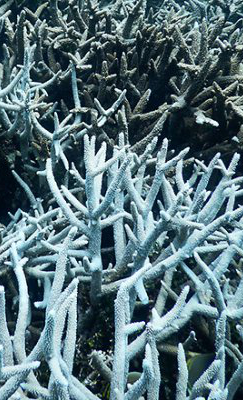Reef rebuild gets new backing
 New funding has been awarded to a Great Barrier Reef coral larval restoration project.
New funding has been awarded to a Great Barrier Reef coral larval restoration project.
The money will allow Southern Cross University’s Marine Ecology Research Centre to join forces with other reef restoration experts to increase the rate of juvenile coral growth on the Great Barrier Reef.
Centre director Professor Peter Harrison says the Australian and Queensland Governments’ funding announcement will increase the rates of successful settlement and recruitment of juvenile corals on the Great Barrier Reef.
Larval restoration involves harvesting millions of coral eggs and sperm during mass spawning events, growing the coral larvae in enclosures on the reef and in tanks, and then releasing larvae onto dead coral to rapidly increase the rates of successful recruitment of new corals.
Professor Harrison’s vision is not only to help rescue the world's degraded coral reefs, but to develop large-scale restoration partnerships with researchers, managers, conservation organisations and companies to increase the scale of successful production and settlement of many millions of coral larvae.
Professor Harrison and his team from Southern Cross University have successfully trialled larval restoration on reefs previously at Heron Island and One Tree Island reefs on the southern Great Barrier Reef.
The team has also used mass larval restoration to successfully re-establish breeding populations on badly damaged reefs in the Philippines.








 Print
Print